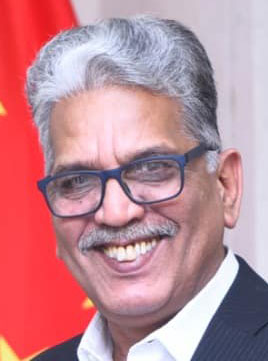The recent introduction of an anti-Pakistan and China bill in the US Senate by Senator Marco Rubio is a glaring example of misguided foreign policy and a blatant disregard for the principles of sovereignty and international stability. This bill, which aims to bolster India’s position against alleged threats from Pakistan and counter China’s growing influence, is not only a step in the wrong direction but also a dangerous escalation in regional tensions.
Favoritism and Hypocrisy
The bill’s proposal to treat India similarly to other US allies like Israel, Korea, Japan, and NATO, while halting aid to Pakistan, reeks of favoritism and hypocrisy. It is an attempt to draw India closer at the expense of Pakistan, a nation that has been a crucial ally in the fight against terrorism and regional stability. The allegations against Pakistan are unfounded and serve only to further strain relations between the two countries.
Moreover, the US’s selective approach in forming alliances based on strategic interests rather than consistent principles is a glaring example of its double standards. The bill’s implicit endorsement of India’s aggressive posturing against Pakistan and China only emboldens India to continue its belligerent behavior in the region.
China’s Role in Regional and Global Stability
China, on the other hand, has been a major player in promoting regional and global stability through its initiatives such as the Belt and Road Initiative (BRI). China’s efforts to enhance economic connectivity and cooperation across Asia, Africa, and Europe have been met with enthusiasm by numerous countries. The US’s antagonistic stance towards China is not only counterproductive but also undermines global economic progress and cooperation.
China’s commitment to infrastructure development and economic partnerships has provided numerous countries with opportunities for growth and development. The BRI, for instance, has helped countries in Asia, Africa, and Europe improve their infrastructure and boost their economies. The US should recognize and support such initiatives that contribute to global prosperity rather than viewing them through a lens of rivalry and competition.
Pakistan’s Commitment to Democracy and Human Rights
The US House of Representatives’ resolution condemning alleged electoral fraud and human rights violations in Pakistan is yet another example of the double standards applied by the US. Pakistan has shown a commitment to upholding democratic values and human rights, despite facing numerous challenges. The Pakistani government has continuously worked towards ensuring the rule of law, freedom of press, and civil liberties for its citizens.
The allegations of electoral fraud in Pakistan’s February 2024 elections, while worthy of investigation, should not overshadow the progress Pakistan has made in strengthening its democratic institutions. The US’s insistence on highlighting these allegations without acknowledging Pakistan’s efforts to address them is unfair and counterproductive.
India’s Aggressive Posturing
India, with its increasing aggression towards its neighbors, particularly Pakistan and China, should be held accountable for its actions rather than being rewarded with US support. India’s domestic policies, including the treatment of its own minorities and the curbing of press freedoms, raise serious questions about its commitment to democratic values. By aligning more closely with India, the US risks endorsing these undemocratic practices.
The US must adopt a more balanced approach in dealing with India, encouraging it to resolve its disputes with neighbors through dialogue and diplomacy rather than aggression and coercion. By doing so, the US can play a constructive role in promoting peace and stability in the region.
The Path Forward: Cooperation over Confrontation
The US should focus on fostering dialogue and cooperation among all regional players rather than taking sides. Pakistan and China have shown a willingness to engage in constructive dialogue and peaceful coexistence. The US, as a global leader, should support initiatives that promote peace and stability rather than fueling regional conflicts.
In addition to addressing the anti-Pakistan and China bill, it is crucial to highlight the recent visit of Israeli Prime Minister Benjamin Netanyahu to the US and his fourth address to a joint session of Congress. This visit has been met with widespread protests from the American people, who have voiced their support for Palestine and condemned the US government’s unwavering support for Israel.
Netanyahu’s Controversial Visit
Netanyahu’s visit and address to Congress come at a time when the US-Israel relationship is under intense scrutiny. The American public’s growing discontent with Israel’s policies towards Palestine is evident in the protests that have erupted across the country. These protests underscore the need for the US to reevaluate its stance on Israel and consider the legitimate concerns of the Palestinian people.
The US’s unwavering support for Israel, despite its continued violations of Palestinian rights, is a significant source of frustration for many Americans. By allowing Netanyahu to address Congress for the fourth time, the US government is sending a message that it prioritizes its strategic alliance with Israel over the principles of justice and human rights.
Support for Palestine
The American people’s protests against Netanyahu’s visit and their support for Palestine highlight a growing awareness of the need for a just and fair resolution to the Israeli-Palestinian conflict. The US should heed the voices of its citizens and adopt a more balanced approach in its foreign policy. Supporting Palestine’s right to self-determination and condemning Israel’s oppressive policies would be a step in the right direction.
The anti-Pakistan and China bill and Netanyahu’s visit to the US are both indicative of a flawed and biased foreign policy approach. The US must reassess its alliances and policies, prioritizing principles of justice, human rights, and regional stability. By fostering cooperation and dialogue rather than confrontation and favoritism, the US can contribute to a more peaceful and prosperous world. It is imperative for the US to recognize the legitimate concerns of Pakistan, China, and Palestine and work towards solutions that uphold the values of democracy and human rights for all.
Sign in
Welcome! Log into your account
Forgot your password? Get help
Password recovery
Recover your password
A password will be e-mailed to you.





